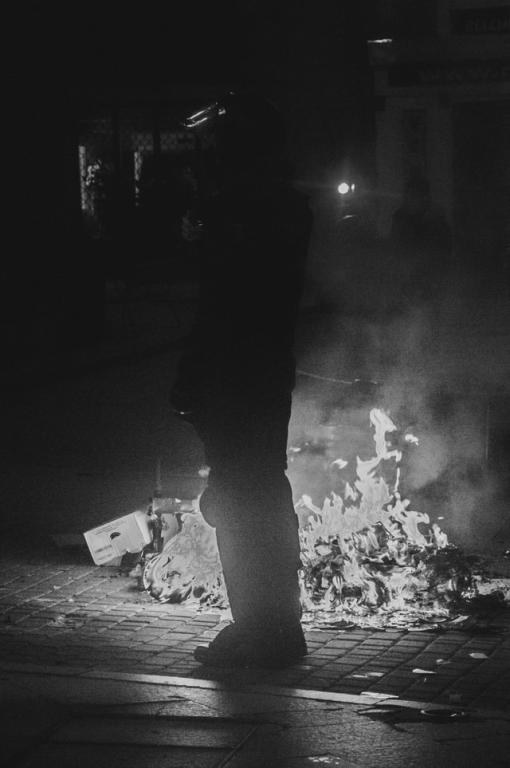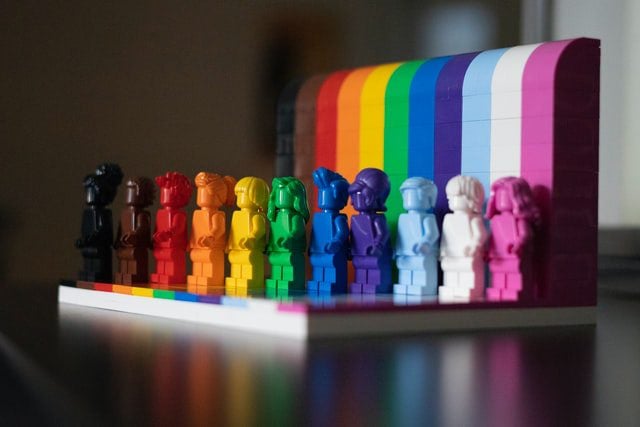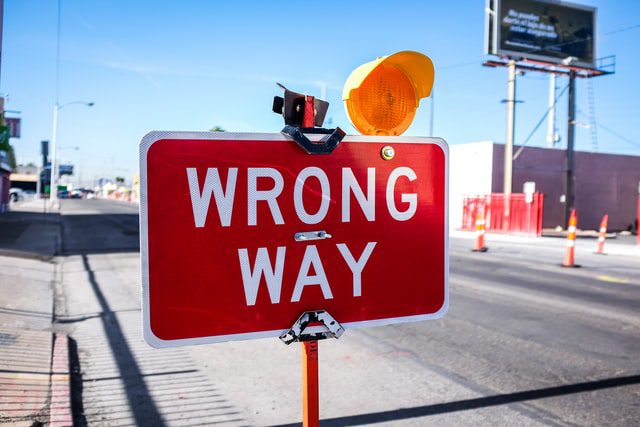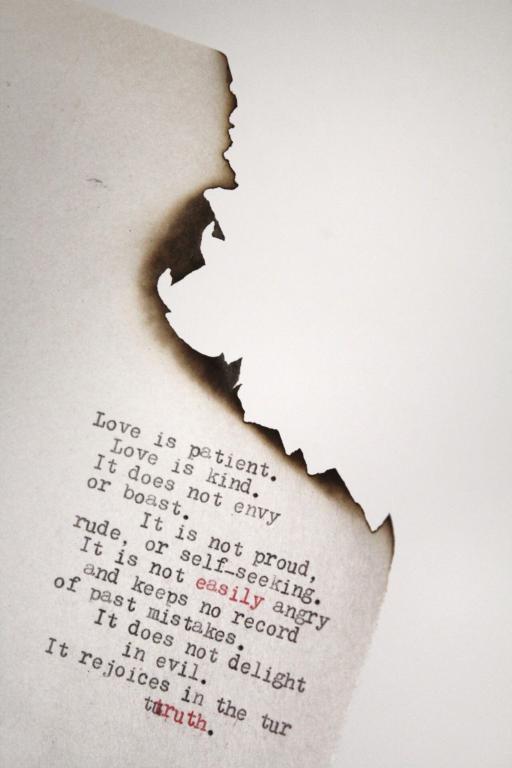
Want more content?
Subscribe to my newsletter so you’ll be the first to know when more content is available!
I don’t like how I see myself in you.
And that’s why I am repelled by you. I see me in you. I see in you, the me that I don’t want to admit is me, along with the things I do and say that I despise about myself. The parts of me that I try to hide are revealed in you. The things I want to call you out for, I am guilty of doing, saying, and writing myself.
When I see you, I see me, and I see all of the things about me that I don’t want to see.
The question I ask of myself:
Why don’t I like the me I see and how can I change that?
Mirrors
I like to imagine we humans are like mirrors. We reflect one another or rather, we reflect God within. We also reflect our egos. And perhaps that is what pushes us away from one another in instances when relationships turn sour, when friendships end, or when we stop relying on someone as an ally and now see them as an enemy.
We are attracted to those who radiate a sameness—whether it be lovers or friends. But in that same person, we are also drawn to their difference. There’s a spark, and it sends shockwaves through our systems, and we just crave more of their presence. In some cases, that can feel like an addiction.
For me, I see that the difference we are drawn to is something greater than ourselves. It’s a diversity that we are not accustomed to. I think that difference that we are drawn to is the reflection of God.
We become addicted to the difference—the divinity—that we see in another. I submit the reason we desire such a difference is because it can be quite difficult to see the reflection of God within another with so much tragedy, chaos, and death circulating our airwaves.
So, the rare glimpses of God reflected in others is a treat that we yearn for more of.
The sameness that we are drawn to, I conclude, is merely egoic and carnal by nature, but still influences our personality.
Some would call if the “false self”, others refer to it as the animal/reptilian self. The evolutionary self that discerns every approach and invitation as a choice between pleasure and pain. The part of our psyche that lives in a dichotomous paradigm of this or that.
Does this mean we have two selves? For now, that’s the way I see it.
We have a true Self, one that operates within the “mind of Christ” mentality. Now, that doesn’t mean with a Christian mentality—it’s bigger than that, it’s a cosmic mentality. It’s Ubuntu, it’s karma, and it’s much, much more than that.
So, a mind that recognizes the collective in an “other-oriented” way. I would go so far as to say the part of the psyche that can manifest kenosis.
Then we have our selfish, biological, primitive, protective egos self, which recognizes a more individuated, self-orientation. One that operates from wants and desires. Essentially, this is the Self that we see in others that we are attracted to.
Which lead me to another question:
When we cut negative people out of our lives, when we decide someone else is just too toxic for us; are we really doing this because we don’t like the image of ourselves that we see reflected back from these people?
When I am not ready to handle how I see myself in another, that means there is a problem with me, personally, and it has nothing to do with the other. Although, for a long time, I stayed convinced that this movement— to cut ties and disconnect from those I view as toxic—was not only progressive, but righteous and healthy.
It’s not Me, it’s Them!
I believed I was setting healthy boundaries. If the others are not willing to self-examine and redirect and correct their behavior and their bad habits, I should just cut the ties. But this is a contrariety for my own principles.
I don’t believe that just walking away is the best answer. Especially if I have years of energy wrapped up in a relationship that for the most part, was invaluable. I don’t just close doors.
Not only that, but cutting connections cold turkey leads to a most painful withdrawal.
The ego excludes. That’s part of the task of the egoic mind. It’s a boxed in protection service that fears change and challenge to its homeostasis. Homeostasis, in this phenomenological instance, is like a status quo of our own mind. We don’t want to upset the balance of the beliefs we currently hold. We don’t want to be forced to look through a new lens—especially a lens that focuses more clearly on how we see ourselves in others rather than how we see others.
So, is it that what I see in others—the me that I see in them, a piece of me left waiting to be transformed so that I don’t see that exclusion of myself, but only the inclusion of myself in the other?
Is the sign of a stronger contemplative character that of a person who, when they look into the eyes of another, or when they interact with another, when they share the same present space with another; can see the fullness of not only the other, but of their own humanity and divinity? And also, accepts all that they are in the reflection of another?
More questions only come to mind:
Does this mean that I am not currently comfortable with the fullness of my own humanity—the realness of my “fallen” nature?
Does this mean that the me that I see in others is just not enough for me to accept?
Is that why I reject others? Why I cut others out of my life? Why I block others on social media?
Initially, as I was working out all of these questions, I thought of a particular person that I have had a hard time accepting.
Blocked!
A while back, a social connection was made with an individual that I saw as eager and encouraging. Soon after having a few interactions with this person, I came to realize there was just something about this individual that I did not like. Soon, the eagerness turned into brown-nosing. The encouragement turned into destructive criticism. There was jealousy and a bombardment of an almost forced competition, based on my perception of this person’s actions and statements.
Then there were demands, expectations, and ultimatums that I just could not handle. The funny thing about that, for me, was, that I once use to be utterly trite with my own demands and ultimatums, with my husband, my children, friends, family, etc. I recognized that about this person and realized that I just wasn’t down with that kind of vindictive behavior. Of course, when I confronted this person, my intention to admonish was immediately received as an attack.
And oh, did this person get spiteful after that. Which again, I could relate to—I could recognize, because I too, have played some pretty spiteful roles in my life.
Before I came to the conclusions, however, in hindsight of course, I justified blocking this person on all social media. This is something I struggle with, especially more so that I have been deeply contemplating the idea that everything is a gift. I can’t justify blatantly rejecting gifts anymore, even if I have a hard time accepting things as gifts.
Having said all of this, a part of me rested on the idea that the reason I could not tolerate this person anymore was because the affect this person had over me. Had it been a positive impact, I would have stuck around to imitate the behavior, but I didn’t like what it provoked in me. It made me want to act as equally trite, spiteful, and vindictive, to give this person a taste of their own medicine, so to speak.
Perhaps there is a way that others know what habits and behaviors we once depended on to protect our egos. Perhaps that is the draw to sameness that goes beyond just superficial at first. We are drawn to likeness, are we not? Does this mean we are drawn to the weak, egoic functionalities of surface-level behavior as well?
Maybe my ego can sense the vindictive nature of the other’s ego, and somewhere, I subconsciously think:
Hey, do you like to be petty, spiteful, and controlling when you don’t get your way? Be a lot cooler if you did. Want to be friends?
So then, how do we go about transforming that which we see and do not like into something we want to see more of?
In New Seeds of Contemplation, Thomas Merton finds that it is how we identify ourselves that allows us to see our full selves in another.
The more I become identified with God, the more will I be identified with all others who are identified with Him. His Love will live in all of us. His Spirit will be our One Life, the Life of all of us and Life of God. And we shall love one another and God with the same Love with which He loves us and Himself. This love is God Himself.
Jesus the Christ prayed that all might become One as he was One with the Father. If we are to become one, that means we have to include even the reflections of ourselves that we see in others that we do not like.
How can we accept that part of ourselves? How can we accept that of others?
It starts with freeing ourselves from self-imposed isolation, for one. Merton knew that isolating ourselves deadens us. He asks:
How can fire take possession of what is frozen?
Let’s ask Elsa if her isolation ever brought her any comfort or warmth? The cold never bothered her because she was numb to it, it was normal for her, she embraced the cold because she didn’t think she deserved the warmth.
And that’s it, isn’t it? When I see myself reflected in another, I don’t believe it’s worthy of being accepted, so I reject it and pull away from it.
But the result is that withdrawal I referenced above. The withdrawal feels like exclusion. And exclusion is a curious thing to feel if I made the choice to walk away, isn’t it?
I think the danger in self-awareness, if it is not gauged or encouraged with some form of contemplative, transformative measure, can lead us toward isolation.
Contemplative Isolation is Still Isolation
Consider the mystics and the monks who live a life of seclusion. Some exclude themselves from an inclusive society (a society of people and Spirit, not a society of cities and suburbs). They go about, frolicking in some far away, remote hut to possess God all for themselves, and share none of their insight or wisdom with others. It’s a tragic loss for the rest of society.
The same danger lies in modernity’s trend of the secluded incel, or isolated individual who feels like they are not a part of anything greater than themselves. In their attempts to make their mark in history, as recent days have demonstrated, the seek out the ultimate and most perverse way to pay their contribution to society by spreading their pain and projecting their rage at innocent people who were merely shopping for groceries.
Merton speaks to this:
The ultimate perfection of the contemplative life is not a heaven of separate individuals, each one viewing his own private intuition of God; it is a sea of Love which flows through the One Body…
I will have more joy in heaven and in the contemplation of God, if you are also there to share it with me; and the more of us there will be to share it the greater the joy of all. For contemplation is not ultimately perfect unless it is shared.
Isolate, Interrogate, Integrate
When I see a piece of me reflected in another that I am not ready to make space for; I have isolated particular characteristics about myself that are not necessarily evil, nor are they attributes that cannot be corrected. They are isolated segments of my egoic self that require further introspection.
From this introspection there can be integration. Which I think comes from not only self-awareness, but self-love.
I don’t mean the hippie catch phrase of loving yourself as you are and patting yourself on the back merely because you got out bed this morning.
I mean the kind of self-love that recognizes that, despite all of the instances that I have erred, put my foot in my mouth, and launched gruesome verbal attacks on others; I can stand witness to these acts, apologize for my trespasses, and forgive myself.
We subconsciously—and many times intentionally—exclude ourselves from the Oneness that Jesus the Christ prayed that we would have with God. We do this more so, not by excluding others, but excluding ourselves.
So let us isolate that which is reflected that requires transforming. Let us then self-interrogate to understand why it affects us and how we can grow from knowing that it does. Then we can begin to integrate the tension of the opposites that reside in all of us.
















